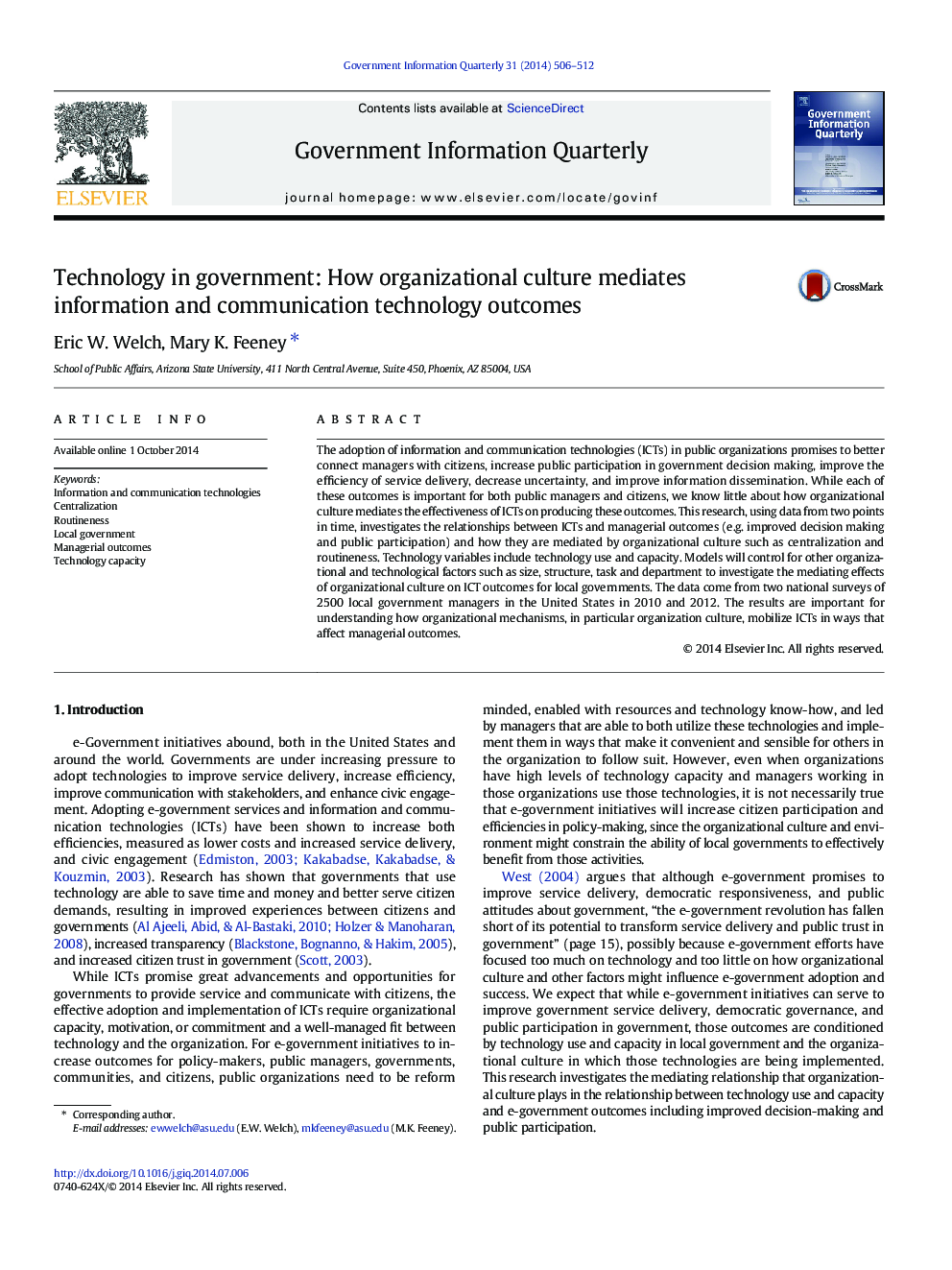| Article ID | Journal | Published Year | Pages | File Type |
|---|---|---|---|---|
| 1024377 | Government Information Quarterly | 2014 | 7 Pages |
•The study shows how ICT capacity in public organizations affects managerial outcomes.•Organization culture mediates ICT effects on improved participation and decision making.•Organizations that have a more routine task orientation take advantage of ICT capacity to improve outcomes.•Centralized decision making is not a mediator of ICT capacity on outcomes.•Greater openness of the organization mediates the effect of ICT capacity on both outcomes.
The adoption of information and communication technologies (ICTs) in public organizations promises to better connect managers with citizens, increase public participation in government decision making, improve the efficiency of service delivery, decrease uncertainty, and improve information dissemination. While each of these outcomes is important for both public managers and citizens, we know little about how organizational culture mediates the effectiveness of ICTs on producing these outcomes. This research, using data from two points in time, investigates the relationships between ICTs and managerial outcomes (e.g. improved decision making and public participation) and how they are mediated by organizational culture such as centralization and routineness. Technology variables include technology use and capacity. Models will control for other organizational and technological factors such as size, structure, task and department to investigate the mediating effects of organizational culture on ICT outcomes for local governments. The data come from two national surveys of 2500 local government managers in the United States in 2010 and 2012. The results are important for understanding how organizational mechanisms, in particular organization culture, mobilize ICTs in ways that affect managerial outcomes.
